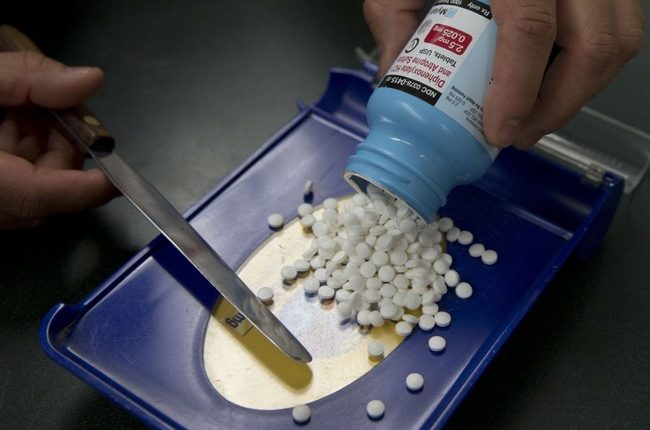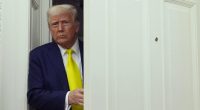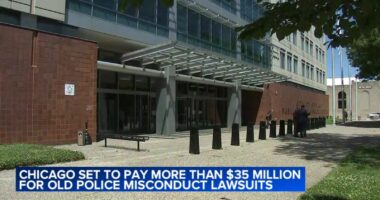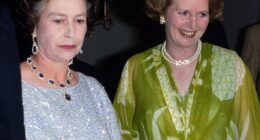Share this @internewscast.com

On Tuesday, President Trump signed what is, to me anyway, one of the most meaningful executive orders of his presidency to date. The president signed an order aimed at pharmacy benefit managers, which I have previously written about here.
The executive order will allow for standardizing Medicare payments for prescription drugs wherever the patient gets care, pretty much eliminating “specialty pharmacies.” There is nothing special about these pharmacies, but they allow for a monopoly of drugs to be provided only by pharmacy benefit manager-owned pharmacies.
These “specialty pharmacies” gain exclusive access and charge a significant amount for medications that would otherwise be cheaper at their local independent pharmacy. I have patients who have PPO/HMO insurances and require drugs such as Tacrolimus, Sirolimus, or even Mycophenolate. These are generic drugs and have been for years. My reimbursement is usually 30-50$ for tacrolimus, 1-200$ for Sirolimus, and 40-75$ for mycophenolate. It all depends on the number of pills and the plan.
Meanwhile, at the specialty pharmacy, patients will pay much higher copays, and the PBM will reimburse its own pharmacy 2- 3 times the amount as compared to any other non-affiliated pharmacy. As you can see, when the time comes to discharge a patient after having a bone marrow transplant (to treat their leukemia), the discharge is held up by requiring a “specialty pharmacy” to provide just those medications. While PPO/HMO plans require this to be sent to their PBM-owned pharmacy, Medicare/Medicaid reimburse all pharmacies.
I have a family member who has ulcerative colitis; it runs genetically on my mom’s side of the family. Most oral medications are covered by insurance, but if there is a “specialty drug” required, it has to be administered through our insurance PBM-owned pharmacy. You are at the mercy of the high copay, whether the medication works or not. By eliminating this practice, it is estimated to lower prices of prescriptions by as much as 60 percent. This family member just tried Tremfya, a drug that costs about $14,000 wholesale. Per the itemized bill, the drug was billed for $122,000, with a co-pay of $8790.00. By the way, she failed this medication and is stuck with the bill. That was all for one infusion — from a specialty pharmacy.
The Trump executive order also allows for massive discounts for low-income or uninsured patients for life-saving medications. Insulin will be lowered to as little as $0.03, and a small administration fee; epinephrine will be lowered to $15.00 plus a small administration fee to the pharmacy. Insulin prices were capped and lowered by the Biden administration, but to be clear, not every insulin was affected. Some formularies still require the more expensive drugs, such as Basaglar, which is a brand name for Insulin-Glargine (which comes as a generic or another lower-priced brand called Lantus), to be preferred. This order takes aim at removing formulary development from the PBMs.
A “formulary” is what drugs are paid for by the plan and which don’t make the cut. An example I can give is Eliquis (a blood thinner made by Bristol-Myers) versus Xarelto (also a blood thinner that works in the exact same mechanism, made by Janssen). Both work the same, but both drugs will not be on a formulary at the same time. A PBM usually chooses drugs for a formulary based on which manufacturer will give the best rebate, essentially a “kick-back” for the right to be the preferred drug. There are countless drugs that have a generic option available, but Medi-Cal (the California version of Medi-caid, get it?) will still pay for more expensive brand-name drugs over the cheap generics. The amount of the rebate is kept secret, which is why this EO also calls for transparency on the amounts of money given to the PBMs.
Speaking of Medi-Cal, Gov Gavin Newsom recently sought and was given a $3.4 billion loan to help cover the growing cost of the Medi-Cal program. This comes one year after the governor expanded coverage to undocumented immigrants. This is a topic for another time.
RELATED: Another Failure: Gavin Newsom’s Bankrupted Medi-Cal After Expanding Coverage to Illegal Aliens
Who Do Pharmacy Benefit Managers Actually Benefit?
The Trump executive order has a giant fan, in the form of an old foe, Mark Cuban.
Gotta be honest. The @realDonaldTrump EO on healthcare and in particular, drug pricing could save hundreds of billions.
Here is how:
1. Divorce formularies from PBMs. Require them to come from independent organizations with no economic incentive from the formulary
Make them…— Mark Cuban (@mcuban) April 16, 2025
Overall, I think this is a giant step in the right direction. Legislation at both the state and federal levels has been pretty futile, as these PBMs have so much money that they are able to fight any challenge and fund any politician willing to listen to them. I’m sure legal challenges will be mounted, but lower drug costs and better access to drugs are a winning issue with Americans. This will also allow for independently owned pharmacies to survive into the future, as these past two years have nearly eliminated one in three of all independent pharmacies.
Michel Albert Daher, Pharm. D, APh, is a community pharmacist who has owned and operated three pharmacies located in California and Oregon. He is currently an adjunct professor in the division of pharmacy practice at Marshall B. Ketchum University, located in Fullerton, CA.
Editor’s Note: Every single day, here at RedState, we will stand up and FIGHT, FIGHT, FIGHT against the radical left and deliver the conservative reporting our readers deserve.
Help us continue to tell the truth about the Trump administration and its major wins. Join RedState VIP and use promo code FIGHT to get 60% off your membership.
















